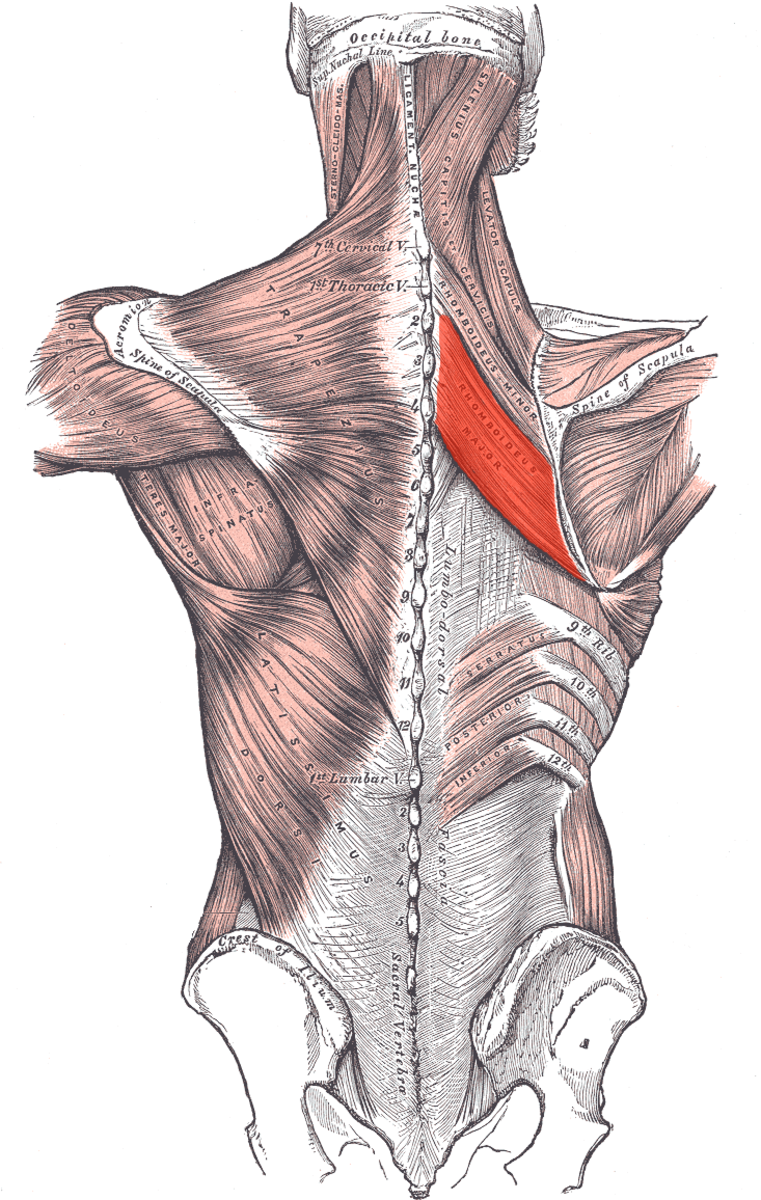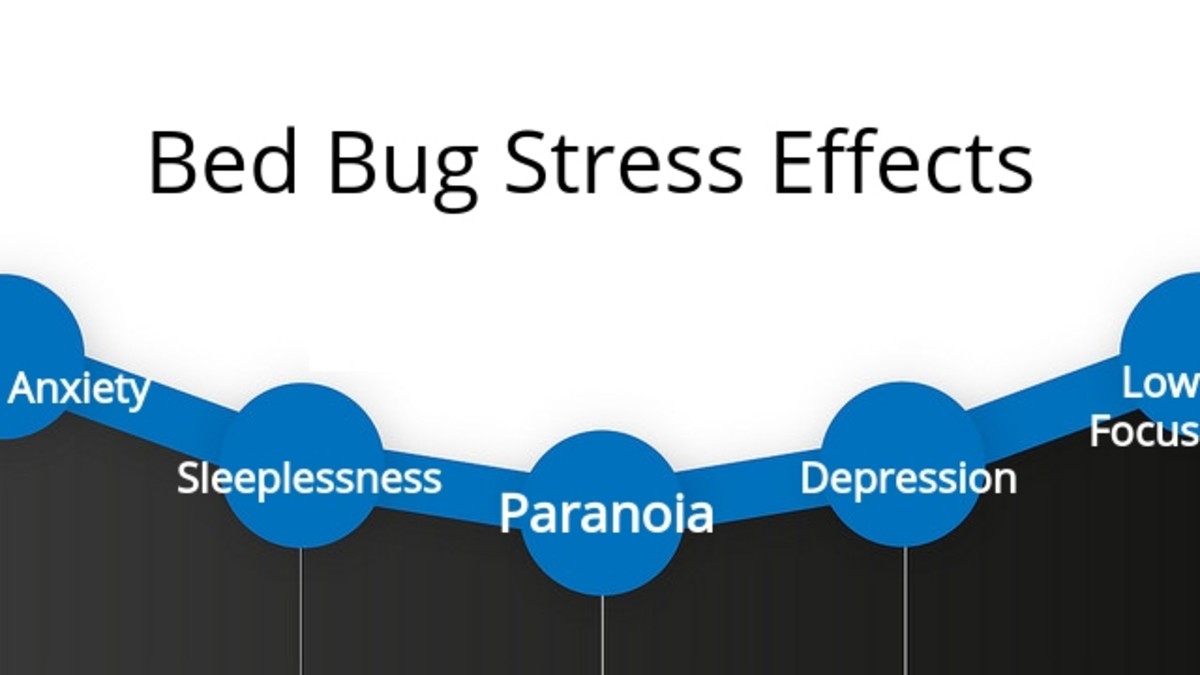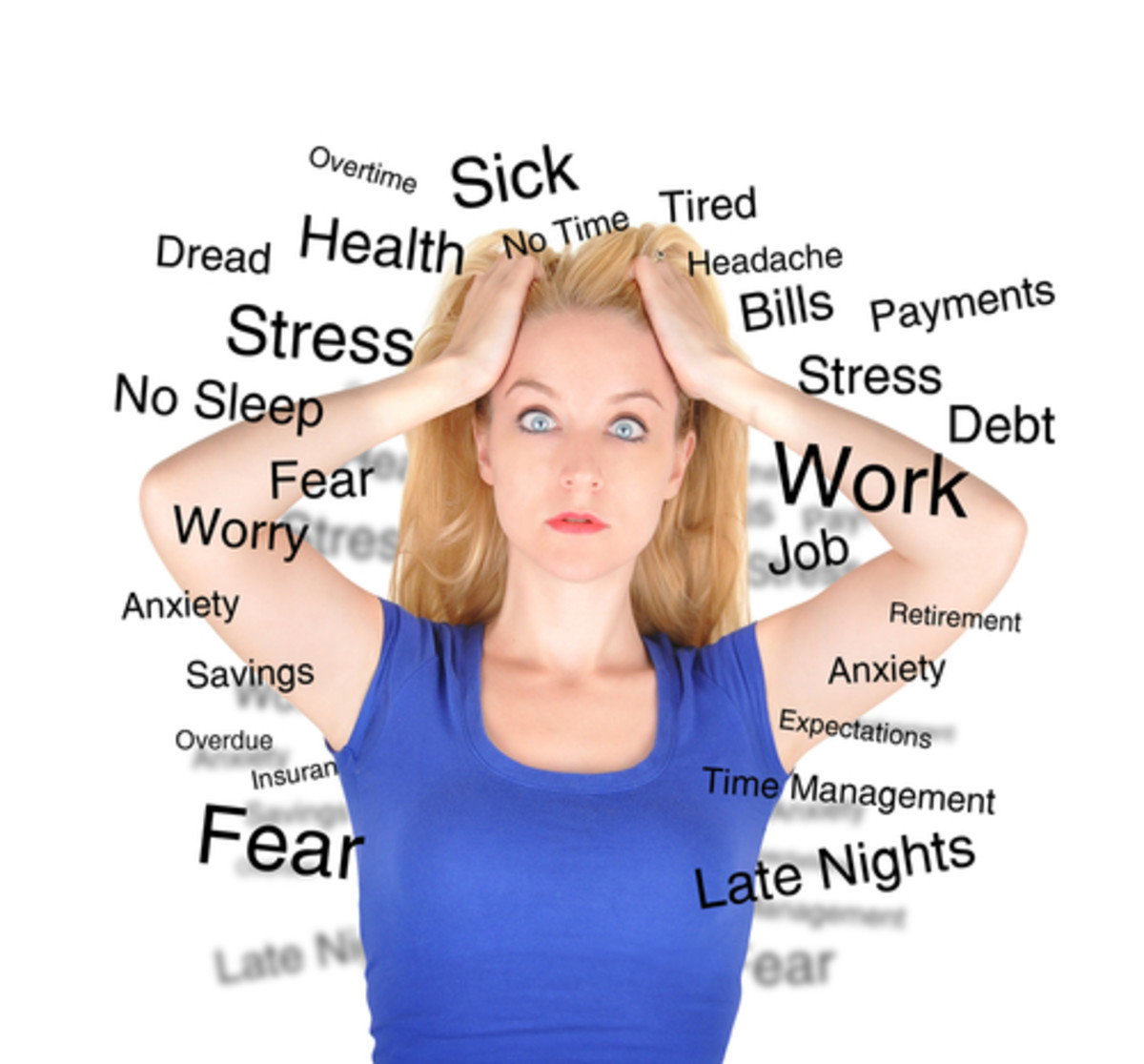- HubPages»
- Health»
- Mental Health»
- Stress Management
How Can I Tell If It Is Stress Or Anxiety?
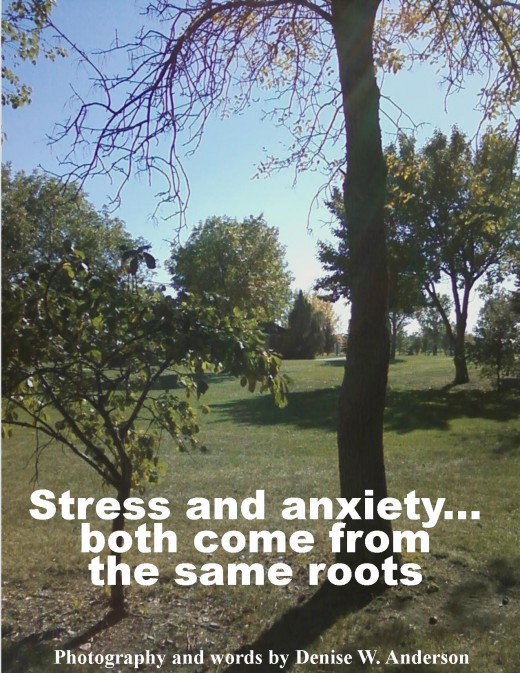
Are you having physical symptoms that could be from stress or anxiety?
"I don't feel well. I ache all over. My head hurts. My stomach won't settle down. I would just stay in bed, but it doesn't seem to help."
When we are feeling this way, perhaps our body is alerting us that something is amiss. Could we be having issues with stress or anxiety?
Stress is the way our body responds to change, whether it is in our physical environment, or things that affect us emotionally. Anxiety, on the other hand, comes from the fear of what we think might happen in the future. When looking at these definitions, it appears that they are two very different issues, however, the physical manifestations of them are very similar.
The table below shows physical manifestations of both stress and anxiety. Notice that all of the body symptoms are found in both. How can we tell the difference between the two? Is it even necessary to do so? The following paragraphs help us to understand more.
Body Symptom
| Stress
| Anxiety
|
|---|---|---|
Rapid heart beat
| X
| X
|
Increased respiration
| X
| X
|
Muscle tension
| X
| X
|
Digestive disturbance
| X
| X
|
Is it really necessary to tell the difference?
Since both stress and anxiety manifest themselves in similar ways, it is hard to tell just which one we are dealing with. The problem is, when we are stressed, we tend to be overly anxious. The converse is also true. When we are anxious, we are easily over stressed.
In order to find the root cause, we can ask ourselves the following questions (from The Emotional Survival Handbook):
- What is happening?
- How am I feeling?
- What am I thinking about doing?
- What will happen if I do it?
- Is that really what I want?
- Is there something that would be better instead?
- What would be best for me and others in the long run?
According to The Emotional Survival Handbook, both stress and anxiety have their roots in what has happened in our past. We process our present circumstances through our past experience. When we see something that we have experienced before, we default to a previous response. If what we experienced was negative, our current automatic emotion will be similar.
Chronic stress builds up over time, and weakens our immune system. Our bodies spend so much time fighting the stress, that we loose our strength and ability to ward off disease. Doctors are quick to note that the majority of the illnesses they treat are due to the cumulative affects of stress.
Anxiety can be the result of cumulative stress. It can also stem from our "fight or flight" response being triggered frequently from unrealistic fears that are emotionally based rather than reality based. Both require similar intervention to deal with the physical symptoms.
When stress levels rise, when distress appears, when tragedy strikes, too often we attempt to keep up the same frantic pace or even accelerate, thinking somehow that the more rushed our pace, the better off we will be.
— Dieter F. UchtdorfFive steps to make the physical symptoms subside
In order to make the physical symptoms subside, we take the following action:
- Pause and be still - stress and anxiety both require us to stop what we are doing and focus on what is happening to our body.
- Breathe deeply - once we are calm and still, inhale slowly, then exhale slowly. It may help to close the eyes and count slowly while we breathe in and out. This simple action slows down the heart, helps the muscles relax, and keeps us from responding in a rushed way.
- Move slowly - in order to remain calm and relaxed, we move slowly. No matter what is happening around us, our slow movement will keep us from getting caught up on a frenzy that will destroy the peace that we have just gained.
- Think before responding - while we are moving slowly, we are allowing our brain time to think ahead at what is happening before we respond. Too often, we respond before we think, and regret our actions later. It is much better to think first, and then respond.
- Smile - a simple smile will keep us relaxed. We cannot be uptight and smile. It just does not work! Smiling relaxes the entire body.
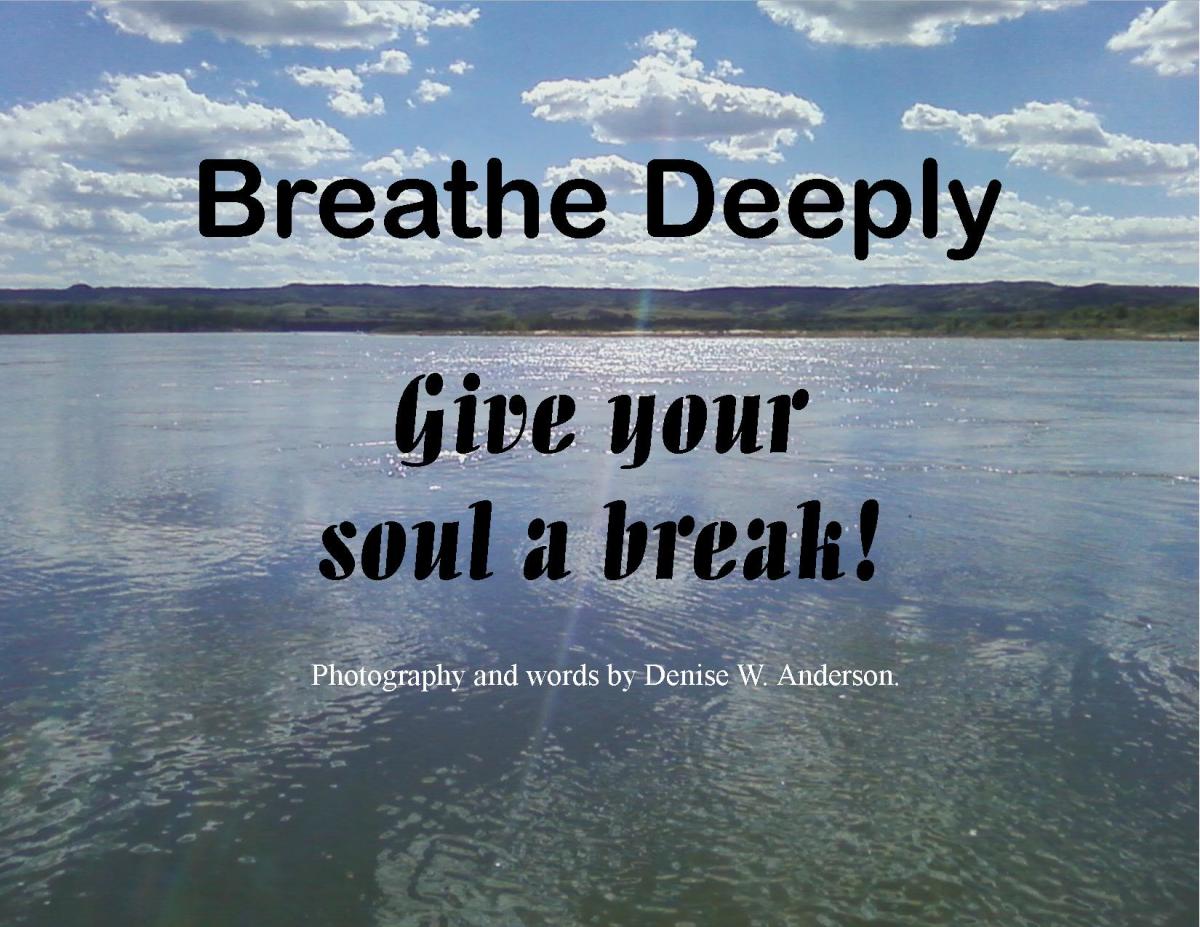
Its all in the gut
Once we are relaxed, we can notice where the source of our distress is coming from. The heart slows down, the muscles stop screaming, and the head throbbing decreases. Now, we can really listen to our body and hear what it is saying.
The key to telling whether stress or anxiety is the core issue lies in our digestive system. Both cause digestive issues, however, stress tends to slow down the digestive system. The body feels overwhelmed with the change that is happening. The appetite diminishes and the stomach feels overly full, like there is a lead weight in the pit of the stomach.
Anxiety, on the other hand, speeds up digestion. Stomach acid is secreted at an alarming rate, and food moves through the system much too quickly. Rather than there being a lead weight in the stomach, there are rumbling and gnawing sensations, perhaps even burping and acid re-flux.
If both sensations are present, most likely both stress and anxiety are present at the same time. As each issue is dealt with, however, its related symptoms will fade away, and we can determine which one is causing us the most distress. It will be the one left in the end, and we can pinpoint the causal factor.
There are so many things to be endured: illness, injustice, insensitivity, poverty, aloneness, unresponsiveness, being misrepresented and misunderstood, and, sometimes, even enemies.
— Neal L. MaxwellNot every issue can be resolved
Unfortunately, not every issue in our lives can be resolved. There are some things we simply must learn to endure, or live with, as long as we live. If the stress and anxiety that we experience has these types of roots, knowing and doing more are not really an option.
Rather, it is necessary for us to develop a refined sense of character with the assistance of the only being in the universe that can help us, and that is God. When we look up to God, we are able to see beyond the present moment, and find ways to cope that we had not previously considered.
The saying, "Let go and let God" helps us to remember that if we let go of trying to control the outcome of a situation that is beyond us, we allow God to help us look at it differently, think of things that we can do rather than things that we can't, and give us peace and comfort that can come from no other source.
We will all face situations in our lives when our only option is to look to God. We develop the characteristic of humility, are able to forgive, and find peace of mind. Turning away from God leads to anger, revenge, and eventually, bitterness. The diagram below shows us this:
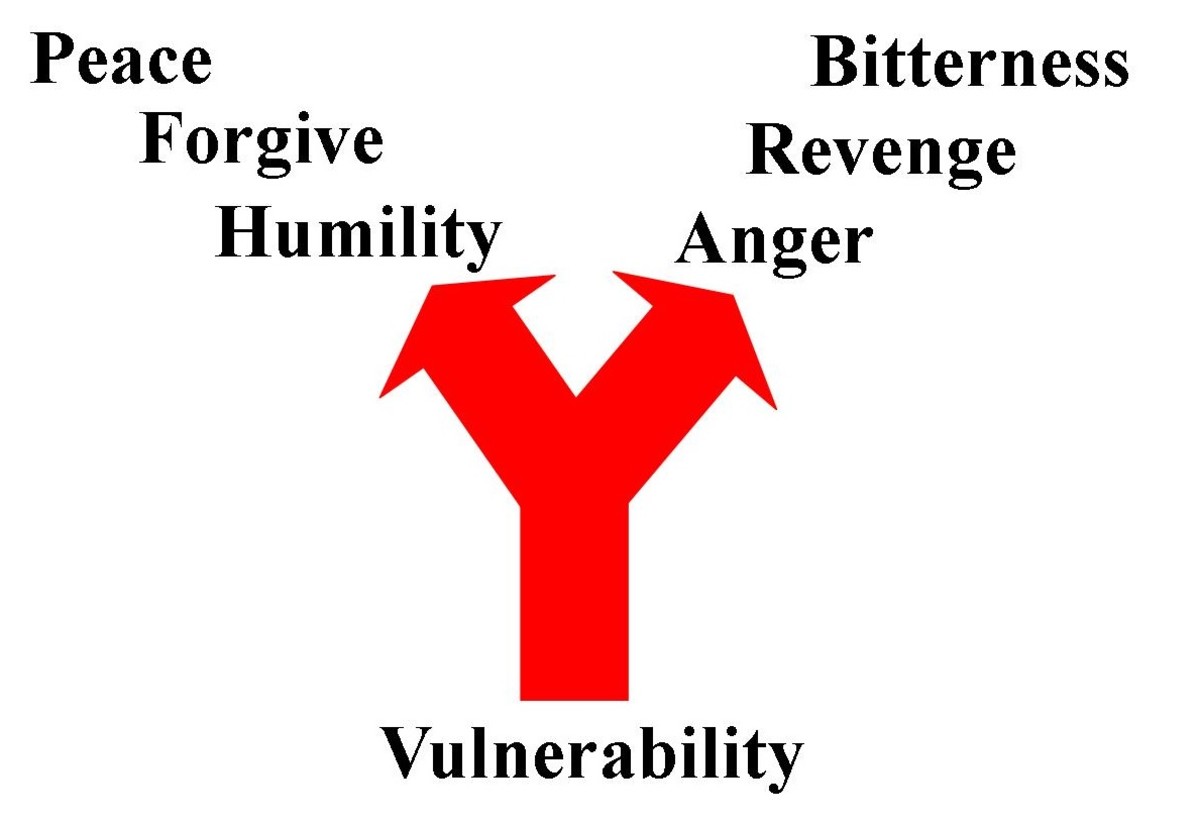
Life is full of all types of experiences, and we are sure to have stress and anxiety at some time or another, no matter who we are or what our education or beliefs. Time is on our side, however, and we can pause and take those steps to reduce our distress, or we can plunge ourselves headlong into ill health and unhappiness.
© 2016 Denise W Anderson


